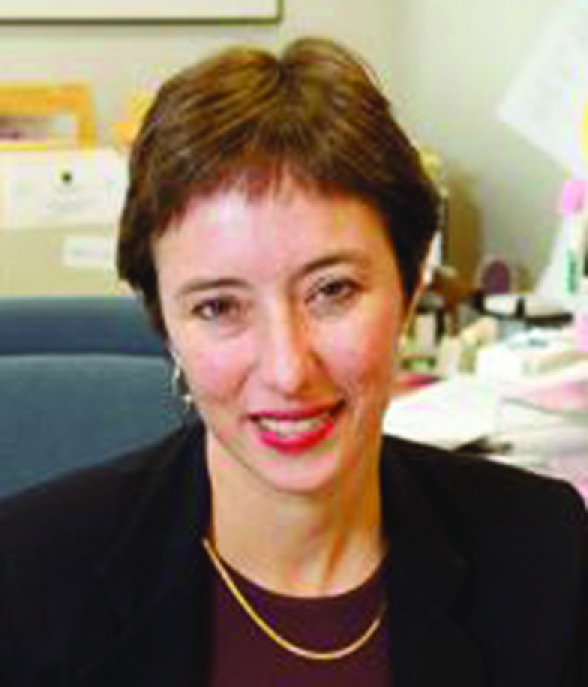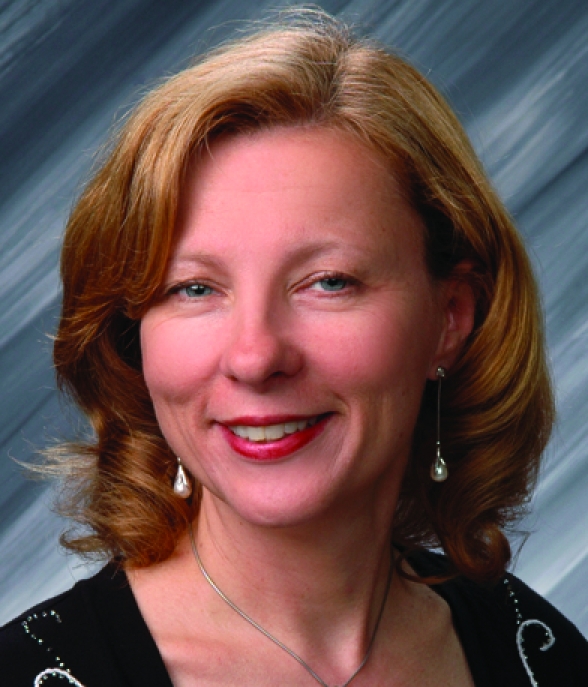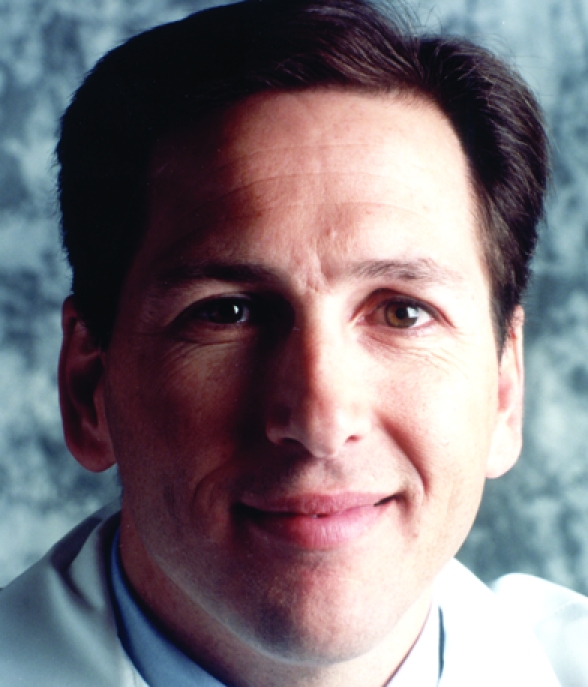Introduction
Genetic testing has become an integral part of cancer risk assessment and management, assisting individuals with decisions about treatment or prevention strategies.
American Society of Clinical Oncology (ASCO)'s 2003 policy statement on genetic testing recommends testing under three conditions: the patient has a personal history suggesting genetic susceptibility, the test can be adequately interpreted, and test results will influence medical decision-making. To emphasize the importance of counseling, ASCO experts also recommended that testing “only be done in the setting of pre- and post-test counseling.”1
Genetic counseling was initially meant to talk with patients about genetic testing. Current practice in this area has expanded to include discussions of the individual's risk for cancer. Testing is just one tool for risk assessment; counseling should still be independent of testing, as some patients may not undergo testing.
“What you really want from counseling is for patients to make a good decision about testing,” said Judy Garber, MD, MPH, Director of the Cancer Risk and Prevention Clinic at Dana-Farber Cancer Institute (Boston, Massachusetts). “Risk assessment is also a very important function. You look at the family tree to see how likely it is a test will find something.”
Genetic Counseling in Practice
Counseling before testing plays an important role in obtaining informed consent. Common components of pretest counseling include:
Developing a detailed family history
Discussing risks, benefits, and limitations of testing
Educating the patient on basic cancer genetics and what cancer risk means
Explaining what to expect during testing
Discussing implications of test results for the rest of the family
Providing an opportunity for patients to ask questions
One approach counselors take is “nondirective,” meaning the counselors try to let patients make their own decisions. In pretest counseling, this may include walking the patient through “what if” scenarios (eg, “What if a test is negative; would it influence your decision for bilateral mastectomy?”) to help the individual think about how he or she would respond to possible test results. This can help facilitate more informed decision making.2
If a patient chooses to undergo testing, post-test counseling helps patients interpret their results, to understand not only positive results, but also negative or ambiguous results, and to provide psychosocial support. Patients can then evaluate risk-reduction surgeries or chemoprevention strategies based on their results. People with positive results may need to explain to their relatives what it means, and counselors can help patients share this information. Many patients with negative results also need support.
“Many people will test negative, but the family history doesn't go away. Some people get frustrated when the test comes back negative because they expected it to tell them what to do,” Dr Garber said.
The genetics program at Memorial Sloan-Kettering Cancer Center (MSKCC) features a mixed model for delivering cancer genetics services. Patients first meet with a genetic counselor for an hour to an hour and a half, and then the attending physician meets with them to review medical recommendations and answer any questions.
Counseling involves evaluating a detailed family history, educating the patient about inheritance, and providing general information on cancer genetics. “Then, we include a targeted discussion of possible syndromes that could explain the family history along with discussing genetic testing options,” said Mark Robson, MD, Clinic Director, Clinical Genetics Service (MSKCC, New York, New York). Counseling also includes conversations about what would be done if the test did show a mutation and implications for family members.
“People have a lot of anxiety about undergoing testing, so we have ongoing psychosocial support,” he said. “Genetic counselors can be extremely helpful in psychosocial support and dissemination of information through families. That's really their forte.”
“It's very clear that genetic information or hereditary cancer risk assessment is becoming an important part of appropriate management of cancer patients. We need to maintain those efforts as we develop new models for getting this information in the best way to our patients,” Dr Robson said.
Reimbursement for Counseling
As a practical matter, it is not always feasible for individual practices to offer counseling. Reimbursement for genetic counselors is low and often not reimbursed commensurate with the amount of time it takes. “It's a disincentive for oncologists to have a genetic counselor in their practice because it's hard for counselors to generate their own salary,” Dr Garber said.
Furthermore, given that most counseling sessions last an hour to an hour and a half, it limits how many patients can be seen in a day. At Michiana Hematology-Oncology in South Bend, Indiana, the practice has partnered with two local hospital systems who offer genetics programs.
As a multisite practice, Michiana faced geographic difficulty in providing access for all patients in addition to the payment issues that would accompany hiring a genetic counselor. “We understood the need for counseling services, so we requested counseling services be offered at two local hospitals,” said Robin Zon, MD, of Michiana Hematology-Oncology.
Michiana does have one physician who offers full genetic counseling, including family tree analysis, calculation, and testing. “A few of us do some version of counseling without the calculation and then refer patients to a genetic counselor in our area,” Dr Zon said.
Another part of Michiana's model is educating general primary care physicians. “We assist them in understanding who the high-risk individuals, by family history, so that they too may appropriately refer patients to the genetic counseling service,” Dr Zon said.
As an added benefit, Dr Zon said that the counselors they refer to work with third-party payers to obtain reimbursement for testing. This aids the group's ability to offer counseling services to patients, which she said “has really raised the bar of our community's cancer care.”
Although reimbursement for testing is low, many insurance plans do cover the service. “A recent survey by our counselors found that approximately 85% of the time testing and counseling services are covered by third-party payers,” Dr Zon said.
Adequate Training for Counselors
Counseling can be performed by a number of health professionals, including genetic counselors, genetic advanced practice nurses, and physicians with specialized training in genetics. ASCO's policy statement on genetic testing recognizes that “dedicated education and experience in cancer genetic testing and risk management are required to provide high-quality, individualized counseling.” Furthermore, ASCO affirms that it is “vital” to train providers, geneticists, counselors, and others to be more knowledgeable in cancer genetics, screening, and preventive oncology.
In response, City of Hope Cancer Center (Duarte, California) developed a multifaceted cancer genetics training program. The first level of training professionals often receive is what Jeffrey Weitzel, MD, Director of Clinical Cancer Genetics at City of Hope, calls “referral-level competence.” This is found through 1-day lectures such as those offered through ASCO, cancer centers, and academic medical centers that offer basic information on cancer genetics and hereditary syndromes.
“It is what we expect of all oncologists, which is that they recognize appropriate patients in their practice to refer for genetic counseling and genetic risk assessment,” he said.
At least this level of training is necessary not only to improve patient care, but also to reduce liability for oncologists.
“Failure to diagnose is a magnet for malpractice, and similarly, failure to recognize a potential hereditary case can lead to liability,” Dr Weitzel said. “This is partly because of an expectation that oncologists can recognize these individuals and refer appropriately.”
Oncologists also need to know how to interpret test results. Positive test results are often straightforward, and a physician can follow the National Comprehensive Cancer Network guidelines for managing that patient. However, most test results are negative or uninformative.
“I think quality of care is essential here, and there is chance to do harm by not understanding how to interpret tests appropriately,” Dr Weitzel said.
For more advanced training, City of Hope offers the Intensive Cancer Genetics Course, offered once a year for approximately 20 professionals. “We believe that optimal care is best delivered in a multidisciplinary setting that involves genetics and oncology professionals,” Dr Weitzel said. The course is co-led by a genetic counselor, Kathleen Blazer, and an advanced practice nurse, Deborah MacDonald, and focuses on community-based practitioners including advanced practice nurses, physicians, and genetic counselors. Sometimes, pairs from one cancer center will be brought in to teach them how to work as a team. The course, funded by a National Cancer Institute grant, includes three phases:
Distance learning—28 modules on CD completed over 9 weeks, plus a 2-hour web conference every Friday
One week of onsite sessions—workshops, case working, mock counseling, and labs
Ongoing education and support—homework assignments to share knowledge in the community, list-serve, tumor board involvement
A third phase of training offered at City of Hope is to train genetics research program leaders. People who are board certified in genetics or oncology can enroll to spend 2 years as junior faculty to develop research skills.
Regardless of reimbursement issues or availability of trained professionals, cancer genetics are a necessary part of oncology care.
“Quality of care is what's important,” Dr Weitzel said. “Cancer genetics programs are a value-added service in any oncology setting.”
Patient Fears of Discrimination
Despite having testing as a covered service, some patients worry about insurance or employment discrimination based on test results. The Health Insurance Portability and Accountability Act does not limit disclosure of genetic information by insurers or limit insurers from collecting genetic information. The act also does not prohibit charging a group more for health insurance–based on genetic information.3 However, most states have laws that prevent insurance companies from genetic discrimination, and 32 states have laws protecting people from genetic discrimination at work.
Dr Garber also warns that life and disability insurance often do not fall under the state laws that protect people from genetic discrimination for health insurance. These insurances can be extremely expensive or denied altogether based on the results of a genetic test.
It's important for physicians to understand the local and federal laws and discuss these fears with patients. The National Human Genome Research Institute's Web site, www.genome.gov, provides information on federal and state laws related to genetic information.
Cancer genetic testing is rapidly growing as research uncovers more and more genes linked to the disease. Counseling remains an integral part of the testing process for health care providers to receive informed consent to testing and to help patients deal with emotional issues that arise during testing.
Figure 1.

Judy Garber, MD, MPH
Figure 2.

Robin Zon, MD
Figure 3.

Jeffrey Weitzel, MD
References
- 1.Offit K, Garber J, Grady M, et al: ASCO Curriculum: Cancer Genetics & Cancer Predisposition Testing: ed 2. Alexandria, VA, American Society of Clinical Oncology, 2004
- 2.American Society of Clinical Oncology Policy Statement Update: Genetic Testing for Cancer Susceptibility. J Clin Oncol 21:2397-2406, 2003 [DOI] [PubMed] [Google Scholar]
- 3.National Human Genome Research Institute: Policy & Ethics. http://www.genome.gov


